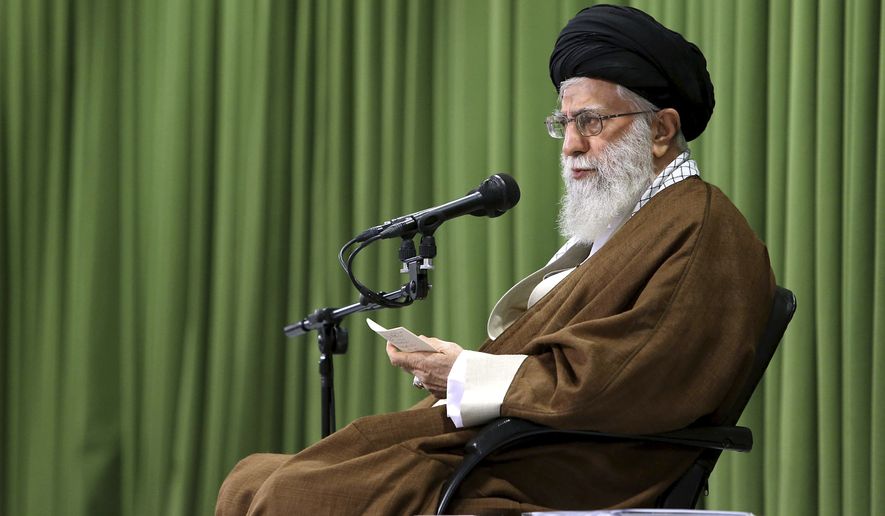OPINION:
Barack Obama might call it the audacity of hope. Others more skeptical might call it “the mendacity of hope.” Two years ago when Barack Obama struck his nuclear deal with the mullahs in Iran he set out to achieve something more lasting than merely limiting Iran’s ability to wage nuclear war.
He attempted to realign the United States away from its traditional allies in Israel and Saudi Arabia and toward Iran, then as now bitterly hostile to the United States and the West. The deal commenced with a huge cash payout to the Iranian Islamic Republic as sort of a dowry for Mr. Obama’s new friends.
But the president learned that in the domestic sphere, as in a new romance, hope and change often have a way of dissipating. The events of the last two years have shown how foolish it was to expect to find a reliable friend among the mullahs.
Sanctions were eased on Iran as soon as the deal was struck, and the ink was barely dry on the nuclear accord when Tehran resumed testing ballistic missiles, a poke in America’s eye if there ever was one. The regime remains brutally repressive at home. It continues to support terrorist groups that have killed scores of Americans and others. Indeed, Syria is a charnel house in part thanks to Tehran’s unwavering support of Syrian President Bashar Assad.
President Trump refused to certify the mullahs in compliance with the deal earlier this month. The terms of the deal require the president to certify that in his judgment Iran is in compliance with its promises every 90 days. The president rightly argued that Iran is not behaving in America’s national interest, as promised.
This lack of certification does not scuttle the nuclear accord, as many excitable voices in Washington are saying, but the Trump administration signaled that the president’s decision marks the beginning of a wholesale reappraisal of America’s relations with the mullahs. This is welcome. It never made sense to lift sanctions on a rogue regime, and a bad global actor besides. The Trump administration urges Congress to establish “trigger points,” or notice of violations which could lead to the restoration of sanctions.
If Tehran fires a ballistic missile, as has been its frequent wont, sanctions could return. That makes sense. There’s further movement to deal realistically with “sunset clauses” in the nuclear accord, which expire on a date certain and merely delay the resumption of Iran’s nuclear-weapons program, rather than eliminate it.
President Obama’s overtures toward Iran were always based on a false premise, that mullahs were negotiating in good faith. Mr. Obama thinks he has a special relationship with the Muslims of the Middle East, and maybe he does. But trust must be earned and Iran has not yet earned it. President Trump was right to be skeptical, and America’s interests demand that he continue to monitor the mullahs closely, and act accordingly. Only the hard-headed are entitled to hope.




Please read our comment policy before commenting.